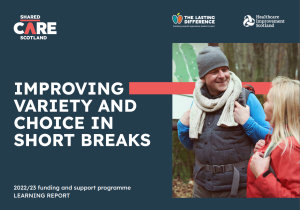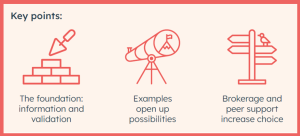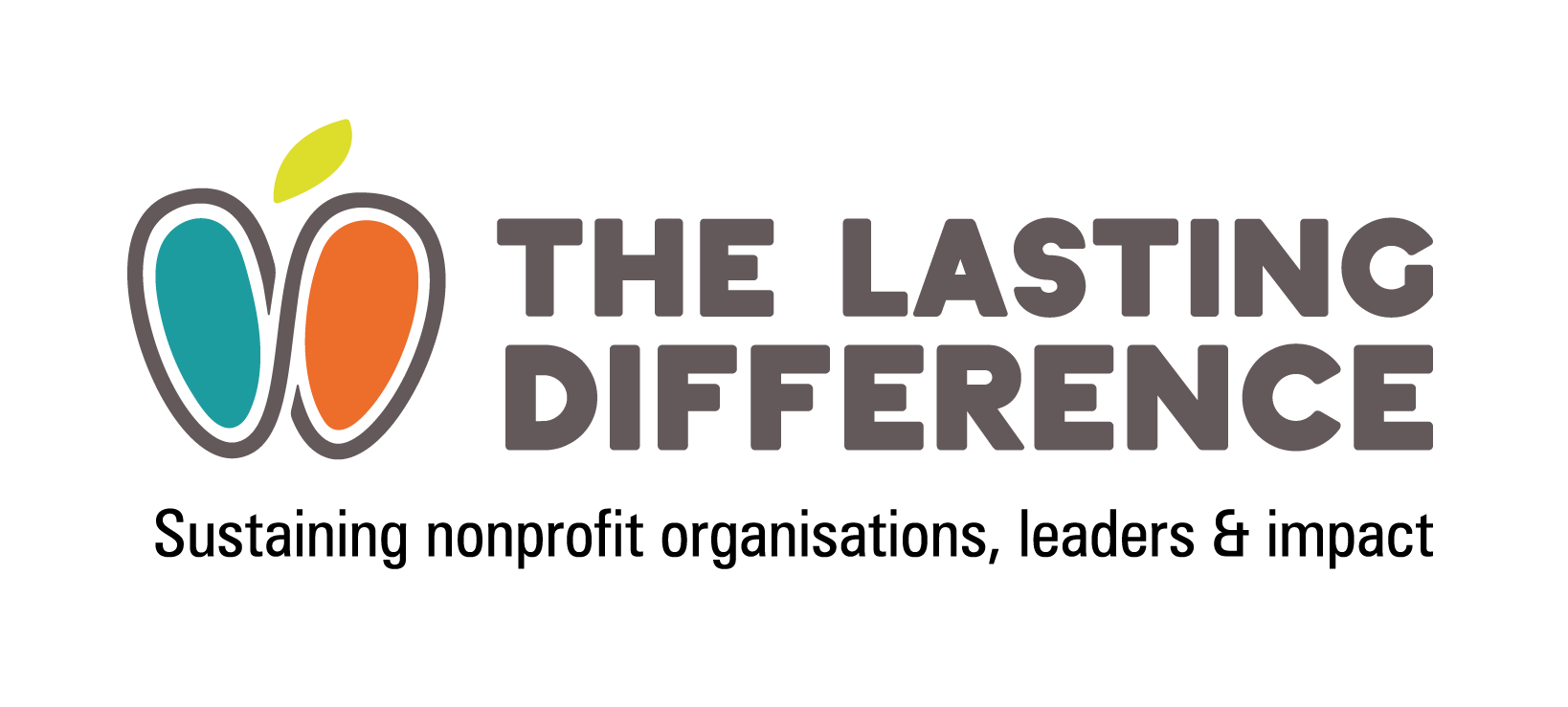We’ve just released the report sharing learning from a collaborative funding programme I’ve been supporting since 2017. I’m very proud of it, see what you think!
 Promoting Variety gives unpaid carers and those they care for access to a wider range of short break options.
Promoting Variety gives unpaid carers and those they care for access to a wider range of short break options.
In partnership with Shared Care Scotland and Healthcare Improvement Scotland, we’ve supported commissioners to promote and develop a more diverse range of short break options in their area, as evidenced in our 2021 Implementing variety report.
While ‘traditional’ building based respite or home-based care, may work for some people, for others it is not suitable or desirable. Promoting variety aims to encourage and support the expansion of alternative short break and respite care options that cater to a wide variety of needs and preferences.
The focus is on promoting choice and control: enabling unpaid carers and those they support to make informed decisions about how they want to access breaks from caring.
The partnerships
Seven partnerships (local authorities, health boards, care providers and carers) worked together over 18 months to explore a range of innovative approaches to service design and delivery, with emphasis on co-production. They came up with some brilliantly creative ideas including cooperatives, timebanking, and even virtual reality breaks. Find out more and be inspired by downloading the report.
Learning and outcomes
1.Increased intelligence increases the choice and availability of short breaks locally.
The key learning here is that validating carers’ rights and giving information lays the foundation. From here, examples of what is possible open up possibilities. For me personally, I was amazed at how powerful peer support was in doing all these things. These things matter. It’s easy to tell ourselves that people will be overwhelmed by choice, so it’s best not to give them it. But in a world where carers aren’t getting the breaks they are entitled to, they are already overwhelmed because of lack of choice.

2. Increased coproduction and planning increases innovation and efficiency.
When carers are involved as core partners and co-designers, the partnerships generated insights and innovations in service design that wouldn’t have otherwise happened. This may not seem surprising, but again the story that’s often told is that carers, organisations and systems are stretched beyond capacity. What we learned was that magic happens when we bring people and resources together. That said,
a lot of what the programme achieved could be done without additional money.
What mattered was creating the time and commitment to do something differently.
Sustainability
Naturally, sustainability and exit strategies were built in from the start! It took many forms in the seven partnerships.
- Partnerships – people who receive, provide and commission services are now used to working together
- Processes – the partnerships have new, more efficient and joined-up processes, speeding up carers’ access to breaks
- Carer resources have been developed
- Staff and volunteers have been trained and supported to develop their practice and understanding of outcome-focused, person-centred work
- Peer support – connections have been made, alliances built. Cooperatives and peer groups will last into the future.
Being a collaborative funder
Although I’ve worked with funders and commissioners for years, I learned a lot about the practice of being a good collaborative funder by doing it for real. From designing the programme, to developing application and reporting templates, to facilitating learning, it’s been a real lesson in practising what you preach. Promoting Variety is all about better, more collaborative funding approaches. Living up to that in the way we designed, delivered and are now reporting on the programme taught me a lot. We reflect on this in the report itself because
We believe our programme provides a template for collaborative funding for the future.
